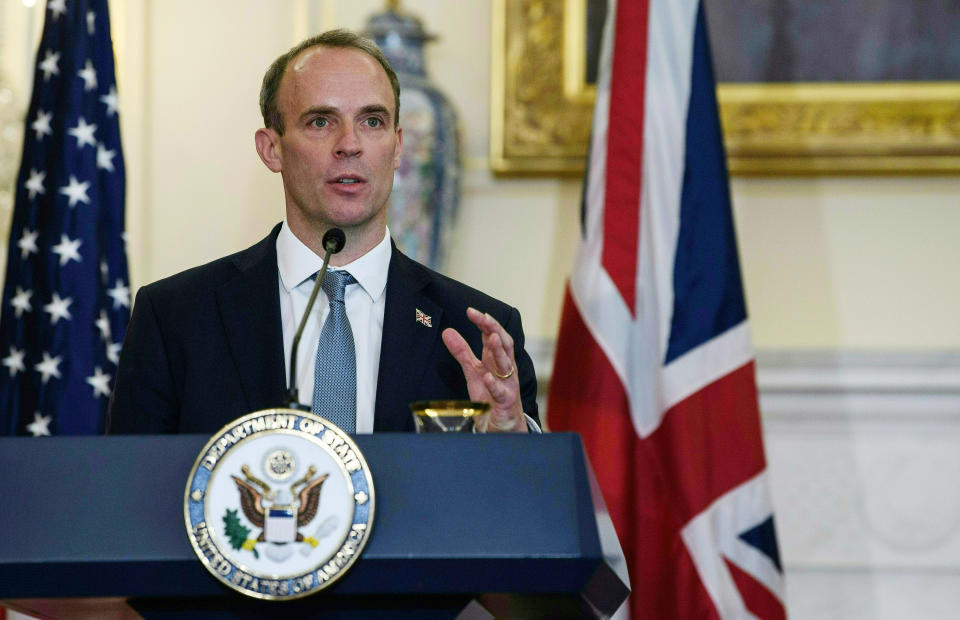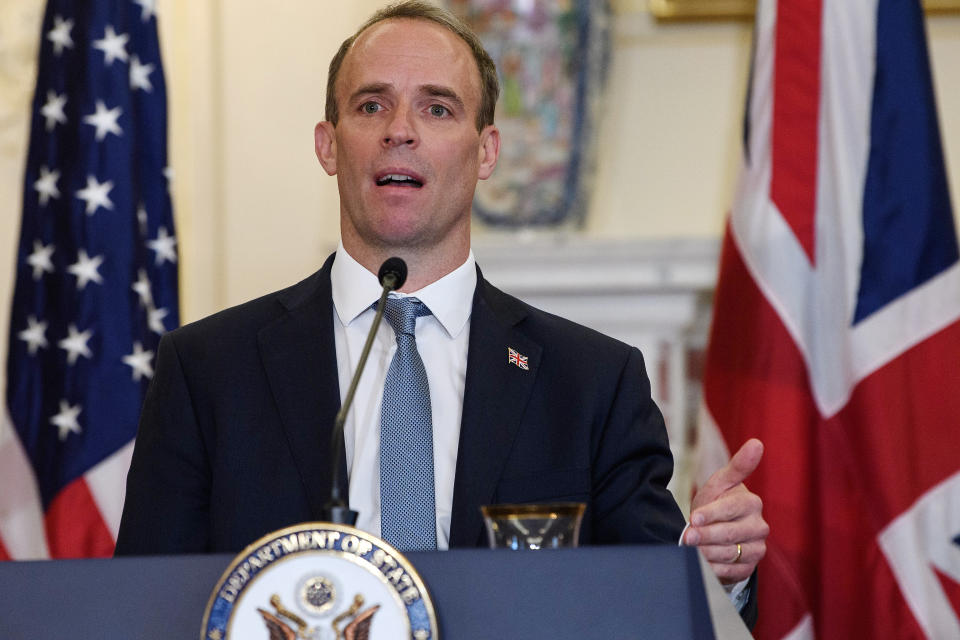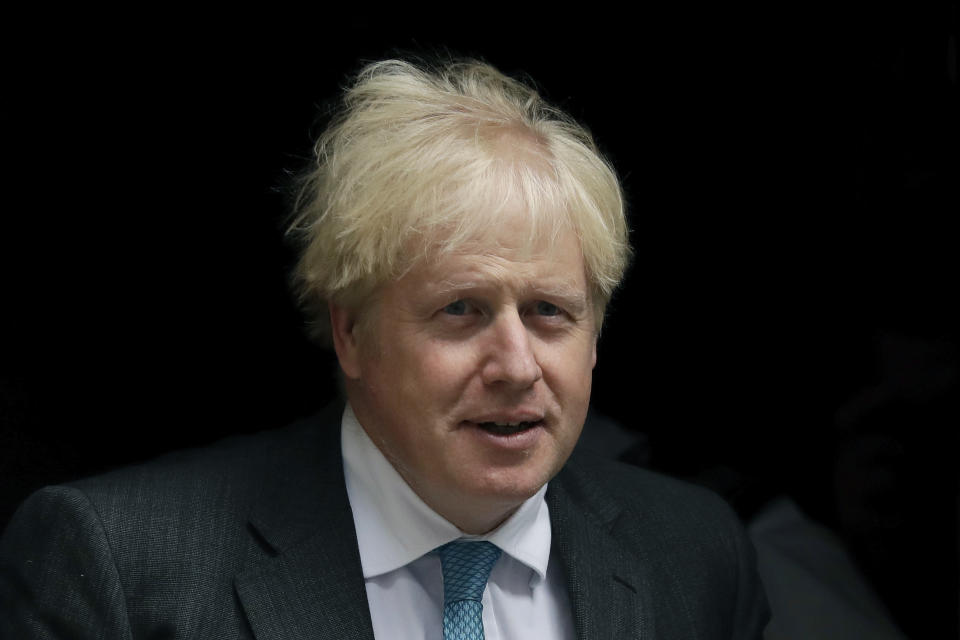UK defends planned Brexit deal breach as Biden slams move
LONDON (AP) — The British government faced more opposition Thursday to its plans to breach the Brexit agreement with the European Union, with Democratic presidential candidate Joe Biden becoming the latest American politician to express alarm and the EU rejecting the U.K.'s stated rationale.
An EU spokesman insisted the 27-nation bloc was negotiating in good faith with the U.K. and had "literally hundreds” of international deals with which to prove its reliability as a partner after British Prime Minister Boris Johnson insinuated the opposite.
Johnson has argued that his government is pursuing a law that would override parts of the Brexit deal as an insurance policy against “unreasonable” behavior by the EU that could threaten the U.K. unity by disrupting trade between Northern Ireland and the rest of the country.
JThe prime minister's move to break parts of the EU divorce deal relating to Northern Ireland has triggered fears it could undermine the 1998 Good Friday peace accord that ended decades of violence between Irish nationalists and British unionists.
“We can’t allow the Good Friday Agreement that brought peace to Northern Ireland to become a casualty of Brexit,” Biden tweeted.
“Any trade deal between the U.S. and U.K. must be contingent upon respect for the Agreement and preventing the return of a hard border. Period,” he wrote.
Britain and the EU jointly promised in the Brexit divorce agreement to ensure there are no customs posts or other obstacles on the Northern Ireland-Ireland border. The open border is key to the stability that underpins the peace settlement.
British Foreign Secretary Dominic Raab is in Washington this week, and has been trying to assuage American concerns that a British government bill would undermine Northern Ireland peace, if passed by lawmakers.
Raab is meeting U.S. politicians including House Speaker Nancy Pelosi, who has warned that Britain won’t secure a much sought-after trade deal with the United States — which would require congressional approval — if it undermines the peace accord.
Raab insisted the U.K. has an “absolute” commitment to the Good Friday Agreement. He described Britain’s planned law as “precautionary” and “proportionate.”
Secretary of State Mike Pompeo said the U.S. was clear on the importance of the peace accords but understood “the complexity of the situation.”
“We trust the United Kingdom. I am confident they’ll get it right,” he said after meeting Raab.
Jamie Davies, a spokesman for the British prime minister, said the proposed law was intended “precisely to make sure that the Belfast Agreement is upheld in all circumstances.”
“We will continue to engage with our U.S. partners on a bipartisan basis to ensure that our positions are understood,” he said.
Johnson has suggested the bloc might not be negotiating in good faith in talks on post-Brexit relations — an accusation which irked the EU.
“I can point to hundreds, literally hundreds of international agreements signed with very, very different three parties of all of all kinds,”sEU spokesman Eric Mamer said. “They are testifying to, as I think you say in English, a rather splendid track record when it comes to carrying out negotiations in good faith.”
If Johnson had any doubts, Mamer said, “what I would simply do is ask you to go and talk to those third parties with whom we have signed these agreements. And I’m sure that they will testify to the quality of our negotiation.”
The EU has demanded the British government drop its plan by the end of September or face legal action.
The bill, which began its journey through Parliament this week, has also caused an uproar in Britain.
Five former British prime ministers have criticized Johnson’s willingness to break international law, and the government’s top legal civil servant and most senior law officer for Scotland have both resigned.
In an attempt to quiet unease among lawmakers from Johnson’s Conservative Party, the government late Wednesday offered a compromise that would require Parliament to vote before the government took any actions that broke international law.
The U.K. withdrew from the EU’s political institutions on Jan. 31 but remains in a tariff-free transition period until the end of the year while negotiators work out the terms of a future trade relationship.

 Yahoo Finance
Yahoo Finance 



